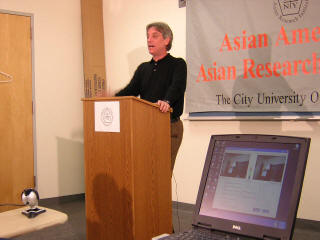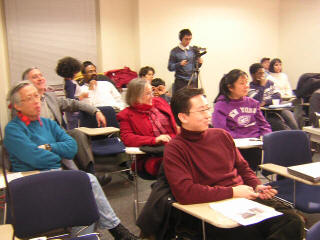
A REVOLUTION IN INFORMATION technology is redefining poverty, as how much you know is becoming just as important as how much you own. “The Hole in the Wall” examines one possible solution to the growing technological gap between rich and poor — the so-called ‘digital divide’ — that threatens to consign millions to an “information underclass.”
When Indian researcher Sugata Mitra embedded a high-speed computer in a wall separating his firm’s New Delhi headquarters from an adjacent slum, he discovered that slum children quickly taught themselves how to surf the net, read the news, and download games and music. Mitra then replicated the experiment in other locations. Each time the results were similar: within hours, and without instruction, the children began browsing the Internet.

Can children — given only access and opportunity — really teach themselves the rudiments of computer literacy with no instruction? “The Hole in the Wall” experiment, and the documentary film that chronicles it, show the answer to be a “Yes!” Mitra estimates that, given access to one hundred thousand computers, one hundred million Indian children could teach themselves computer literacy within five years. The film concludes by noting that the spread of information technology is changing societies around the world, and the implications of Mitra’s experiment are profound — particularly for poor people.
Awards
- Worldfest Houston: Platinum Award
- Gabriel Award
- Athens Film Festival: Best Documentary
- Sarasota Film Festival: Best of Fest
- South Asian Journalists Association: Third Place Outstanding Story about South Asia (Frontline version)

